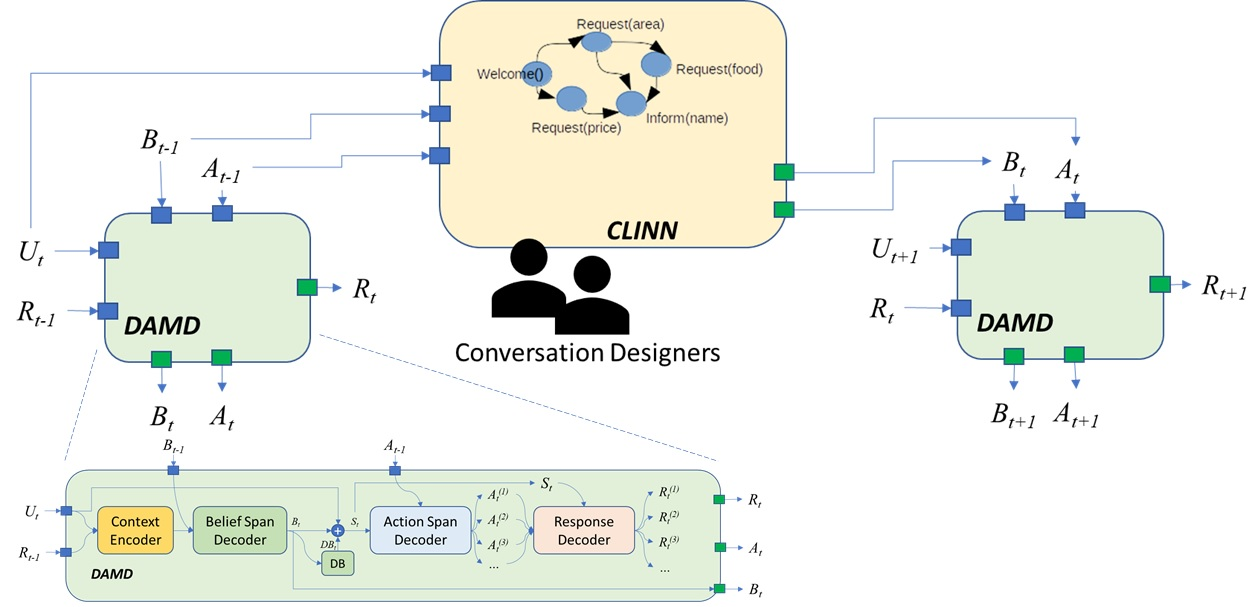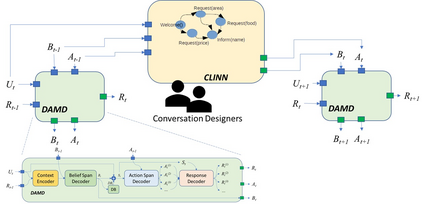Incorporating explicit domain knowledge into neural-based task-oriented dialogue systems is an effective way to reduce the need of large sets of annotated dialogues. In this paper, we investigate how the use of explicit domain knowledge of conversational designers affects the performance of neural-based dialogue systems. To support this investigation, we propose the Conversational-Logic-Injection-in-Neural-Network system (CLINN) where explicit knowledge is coded in semi-logical rules. By using CLINN, we evaluated semi-logical rules produced by a team of differently skilled conversational designers. We experimented with the Restaurant topic of the MultiWOZ dataset. Results show that external knowledge is extremely important for reducing the need of annotated examples for conversational systems. In fact, rules from conversational designers used in CLINN significantly outperform a state-of-the-art neural-based dialogue system.
翻译:将明确的领域知识纳入基于神经的任务导向对话系统是减少大量附加说明的对话需求的有效途径。 在本文中,我们调查了使用对对话设计师的明显领域知识如何影响神经对话系统的性能。为了支持这项调查,我们建议采用“对立-Logic-Inject-in-Neal-Network”系统(CLINN),在该系统中将明确的知识纳入半系统规则。我们通过CLINN, 评估了由一组技能不同的对谈设计师组成的小组制定的半系统规则。我们试验了“多功能”数据集的餐馆主题。结果显示,外部知识对于减少对对话系统附加说明示例的需求极为重要。事实上,CLINN使用的对话设计师的规则大大超越了“对等”系统。




